People of Georgian: Profs take paramedicine training to Ghana
Sept. 4, 2024
What’s your story?
We’re kicking off the fall semester with a special People of Georgian feature on not one but two inspiring employees. Jonathan Lee and Ian Drennan are professors in Georgian’s paramedic programs, and the pair recently travelled to Ghana, Africa, to run a Pre-hospital Emergency Care course.
Ian is also the Associate Director of the Paramedicine Collaborative at the University of Toronto, Department of Family and Community Medicine. He co-created and led the development of the course, which is a collaboration between the University of Toronto and Kwame Nkrumah University of Science and Technology in Ghana.
The course is part of a larger initiative through the African Higher Education Health Collaborative. It will provide continuing medical education opportunities to 20 to 30 health care providers from Ghana per year over the next 10 years, based on their needs.
People of Georgian: Meet Jonathan Lee and Ian Drennan
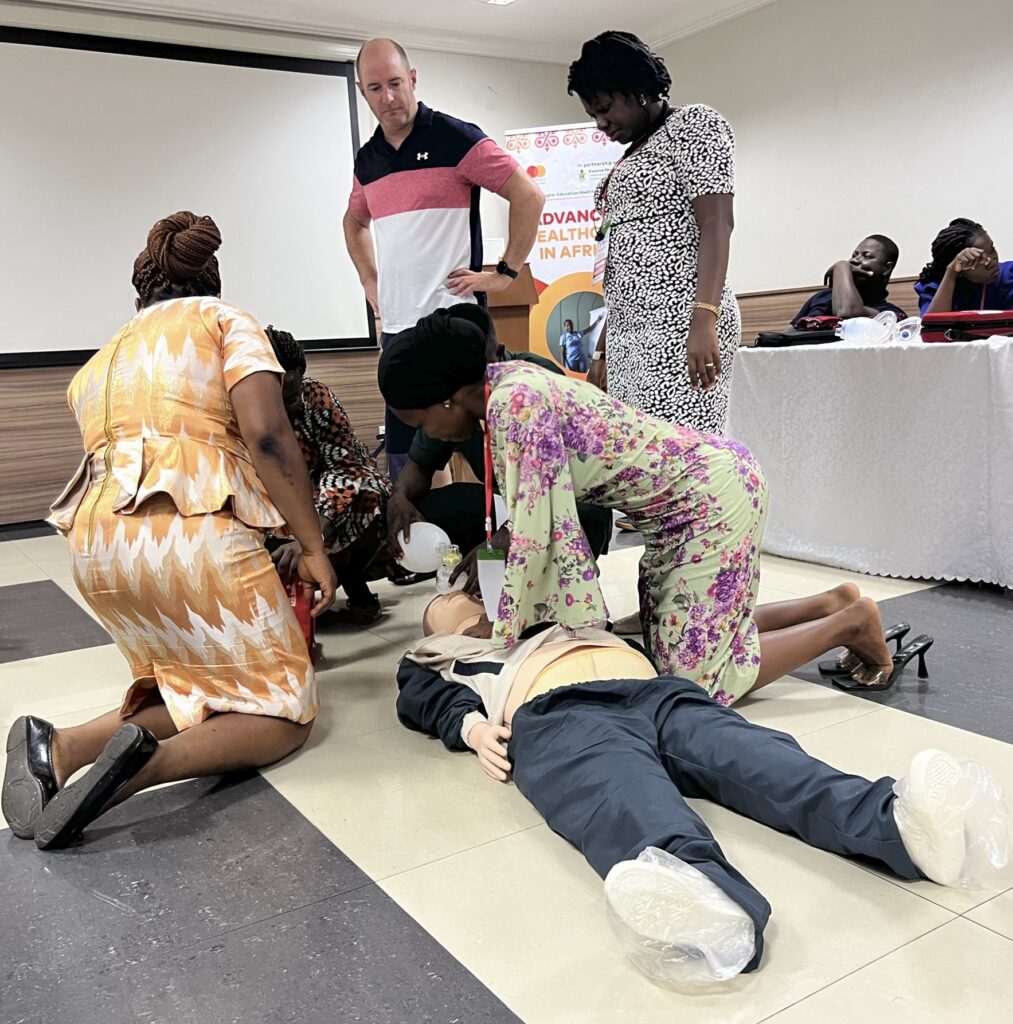
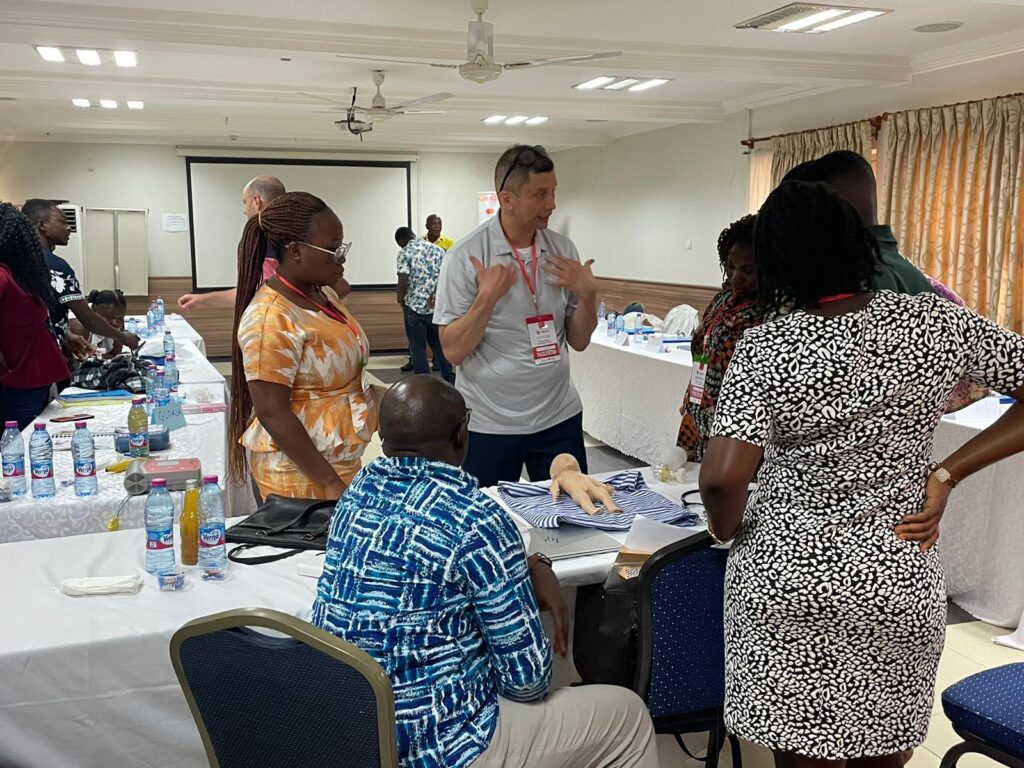
Jonathan:
I got a random text message a couple months ago saying, “Are you interested in going to Africa for a week to teach pre-hospital emergency care in Ghana?”
It was from Ian Drennan, a colleague of mine at Georgian, who is involved with a paramedic collaborative. He’ll be visiting Ghana 10 times in 10 years to train emergency workers there, based on their needs, and build some continuing education-type programming to help grow their emergency knowledge, skills and support systems.
So, I went to Africa with him this summer.
The training we did wasn’t just for paramedics, rather mostly for nurses, midwives, lab techs and ambulance drivers who are often the ones at rural or community health centres taking care of patients before they go to a major hospital.
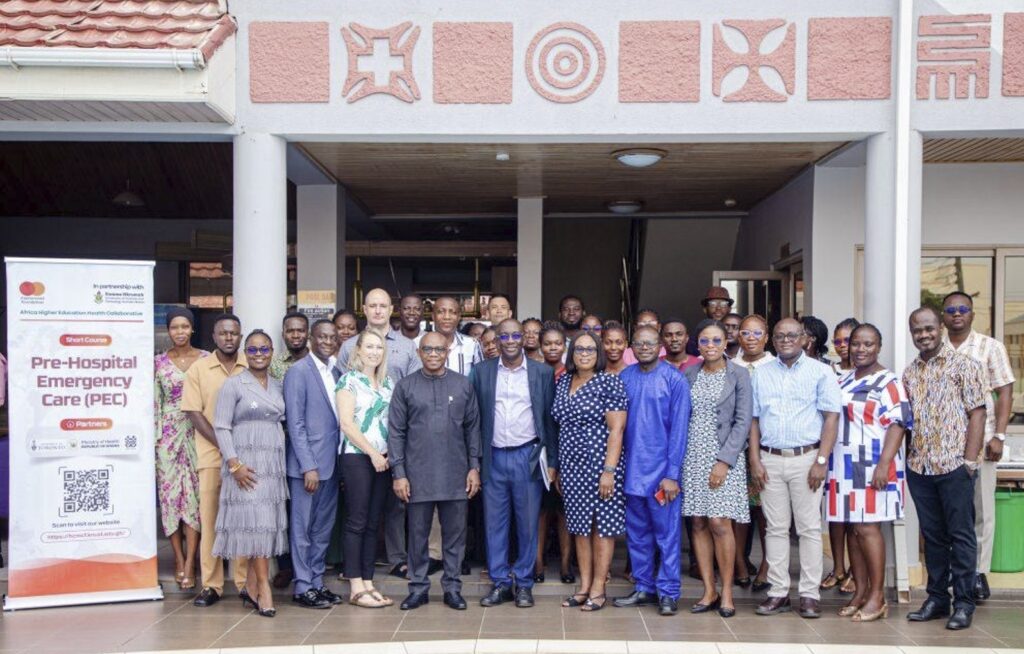
Training specific to health care needs in Ghana
Ian:
It’s important to note the training content wasn’t created by us. It was created by our counterparts in Ghana, and then we worked with them to develop the training around each topic they wanted us to focus on, such as emergency childbirth, CPR and trauma.
Teaching things that are Canadian specific isn’t helpful; we wanted to know what people there see so we could work together to create material around how to deal with different emergency situations. For example, opioids are a big problem in Canada, but opioid overdoses aren’t really a thing in Ghana.
We also have a robust health system to deal with things like heart attacks, but that system doesn’t exist in the same form there. Instead, they have a new system for dealing with strokes, so they wanted to spend a lot of time talking about early recognition for strokes.
Jonathan:
They don’t need us to tell them what we do here, right? It was important to listen first before talking. I learned a long time ago that it doesn’t matter who you are or what you do – training is about leveraging what each individual’s good at and building on it.
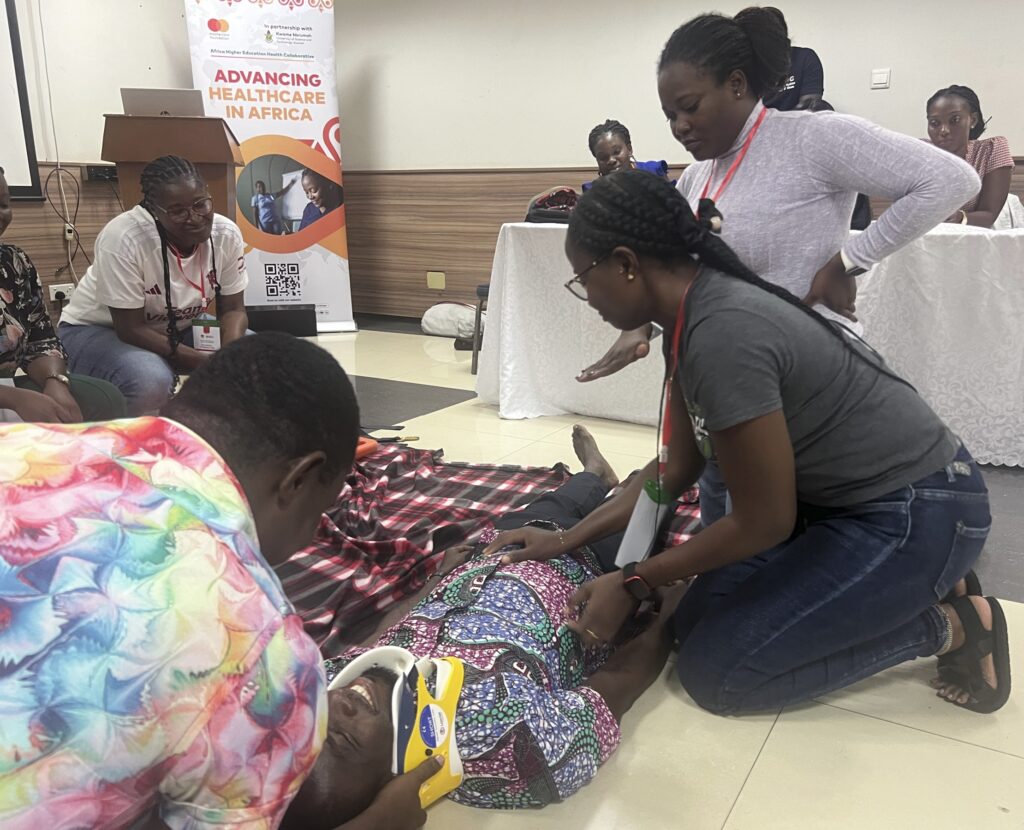
‘We need to improvise’
Ian:
One of the things I heard over and over that you never hear in medicine in Canada is, “We need to improvise.” If you improvise in health care in Canada, it’s a liability.
But there, a midwife could have a patient who’s now having a heart attack, so they have to do whatever they can with that patient’s best interest in mind because they’re all that person has in the moment.
We take a lot of the stuff we would do in Canada for granted. For example, if somebody comes in with shorter breath, we would give them oxygen, but in Ghana you may not have oxygen in your health care facility. If someone has something in their airway, you should suction it out, but if you don’t have a section device, that’s not an option. So, it was interesting adapting our training for their context and learning from them how to adapt.
What I really want to do with this training is make sure we’re giving them the skills to train others in their communities, too, for a more robust health care support system.
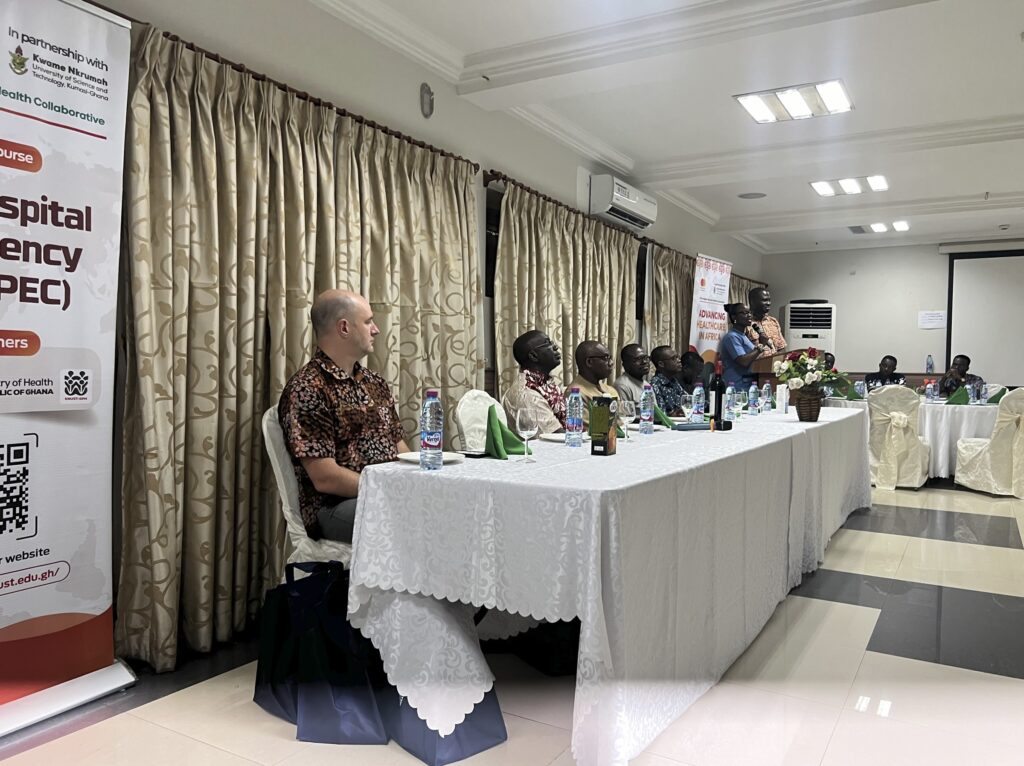
Major differences between health care systems in Ghana and Canada
Another major difference between our health care systems is that no one seems to call the ambulance there. If you get injured, have a heart attack or stroke or have a major trauma, you don’t call the ambulance – you go to the health care centre or you just go home and have your heart attack. Some people wait for days before they decide to seek treatment.
And sometimes ambulances will drive patients eight or nine hours to a rural health centre, which is really just a building with limited equipment.
So, taking everything we learned from the community and tweaking our training for their context was a really interesting experience.
Jonathan:
There is such a divide in Ghana between rural and urban health care. I saw probably one of the biggest hospitals I’ve ever seen in my life when we were in Accra – but access to it is very limited. The farther away from the hospital outside the city you get, the less likely you are to get an ambulance, the less likely you are to call an ambulance, and the less likely you are to get treated by a physician and instead a nurse or midwife.
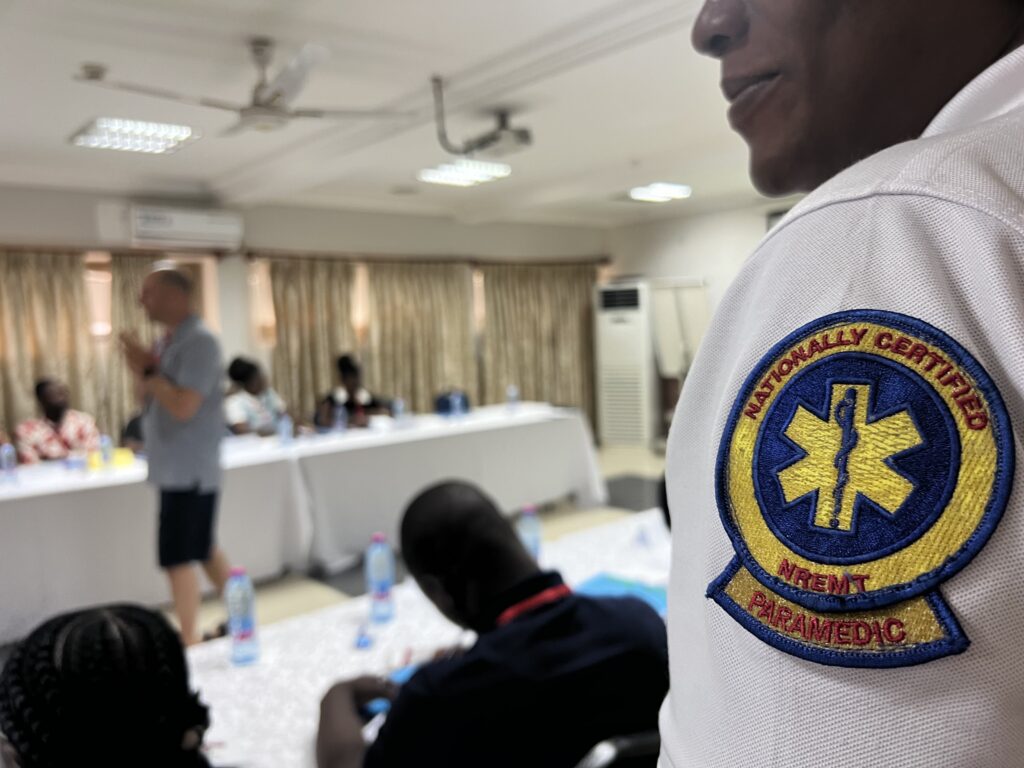
‘Incredible meaningful’ for paramedics to lead global health initiative
Global health is a really difficult thing for paramedics to function in.
Paramedics as a profession are fairly new, compared to doctors and nurses, and there is a wide range of what it means to be a paramedic across the world. Even in Canada, a paramedic in Halifax and Ontario are very different things, let alone what it means to be a paramedic across the world.
Ian:
For comparison, the European version of paramedicine is made up of mostly anesthesiologists and emergency doctors with emergency medical technicians there just to drive the ambulance and perform some basic skills.
Jonathan:
So, it’s incredibly meaningful to have a global health initiative like the one Ian is leading that has paramedics in a lead role because that is a very unique experience.
There’s a lot of nursing and physician research, but to have a place for paramedics is meaningful because it’s carving out our spot in both health care and academia.
Jonathan Lee and Ian Drennan are professors in Georgian’s paramedic programs.